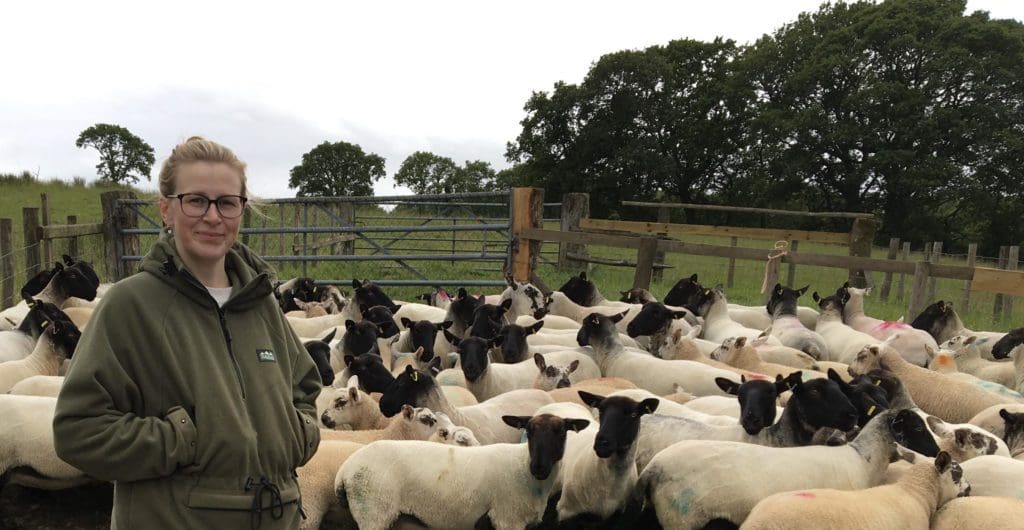A group of pioneering Welsh farms are at the forefront of the drive to increase awareness and stop the spread of antibiotic resistance in animals and the environment.
Twelve ‘Proof of Concept’ (PoC) farms have been recruited as an integral part of Arwain DGC, a project created to highlight the issue of antimicrobial resistance (AMR). The project helps farmers, equine keepers and vets in Wales reduce the need to use antibiotics through training, technology, data gathering, and intelligence*.
Drawn from across Wales, the PoC farms comprise four dairy, four sheep, and four beef farms. They aim to reduce the need to use antibiotics by improving productivity, animal health and welfare through the use of technology, innovative ideas and general ‘good practice’ management.
Arwain DGC’s South Wales Technical Project Officer, Elan Davies, said, “We’re very fortunate to have recruited 12 proactive and forward-thinking farms from across Wales as our’ Proof of Concept’ farms for the Arwain DGC project. We look forward to working with them all and seeing the results of the various projects over the coming months.”
Project work is currently in development and will focus on areas that will aim to improve productivity and reduce antibiotic usage, for example, during the lambing period, earlier detection of pneumonia in calves, and improving mobility in dairy cattle.
Eiry Williams is Arwain DGC’s North Wales Technical Project Officer; she said, “Reducing and using antimicrobials responsibly is vitally important for human and livestock health. I am looking forward to working with the PoC farms in trying to achieve this whilst maintaining and possibly increasing productivity.”
Participating in the Arwain DGC project as a Proof of Concept farm has benefitted the Price family, who farm near Llangadog in Carmarthenshire.
By tightening their disinfection protocols and placing greater emphasis on the quality and timeliness of colostrum feeding, they have reduced the amount of antibiotics used during lambing; and will be concentrating on targeted selective treatment in lambs over the coming months.
Gwen Price said, “I hope that by being a PoC farm, others will be able to see how the need for antibiotics can be reduced and the benefits of that reduction.”
Novel technology enables Proof of Concept (PoC) farmer Iwan Davies to detect and tackle disease early in his suckler herd and reduce the need for antibiotics.
Iwan, who farms at Cerrigydrudion in Conwy, is trialling the use of bolus technology. The bolus acts as an ‘early warning system’ alerting him to potential infection in a cow when it is in heat or the early stages of calving and any other health matters such as mastitis or lameness. This notification enables him to act before the disease develops and the cow reaches the stage where it needs antibiotic treatment.
He said, “The system does not take the place of good husbandry or management, we’ve still got our eye on everything, but anything that can further help us – and help reduce the need for antibiotics – is a plus.”
Mobility is one of the most common conditions affecting the health and welfare of dairy cattle. But since installing an automatic foot-bath in his milking parlour, Tom Bletcher, who farms near Mold, has seen a marked improvement in his dairy herd.
The early results have been impressive, with a sizeable reduction in the number of active digital dermatitis lesions cases.
He said, “I think the automatic foot-bath was money well spent, as the herd health has improved and the need to use antibiotics has reduced.”
Arwain DGC Project Manager, Dewi Hughes, said, “We will be hosting open days on these farms from the Autumn onwards, we look forwards to showing first-hand how the techniques and technology has worked to reduce the need to use antibiotics and improve productivity.”

